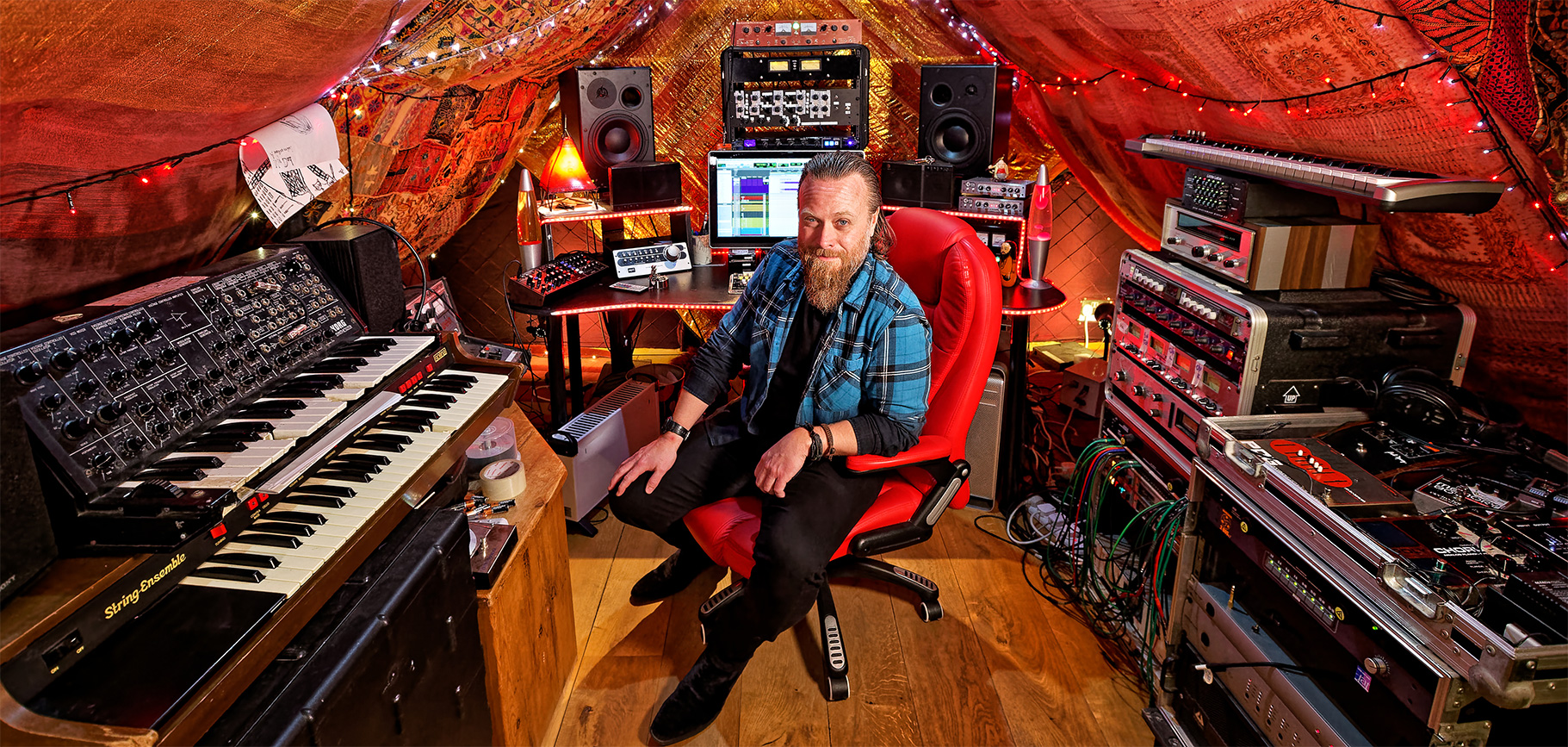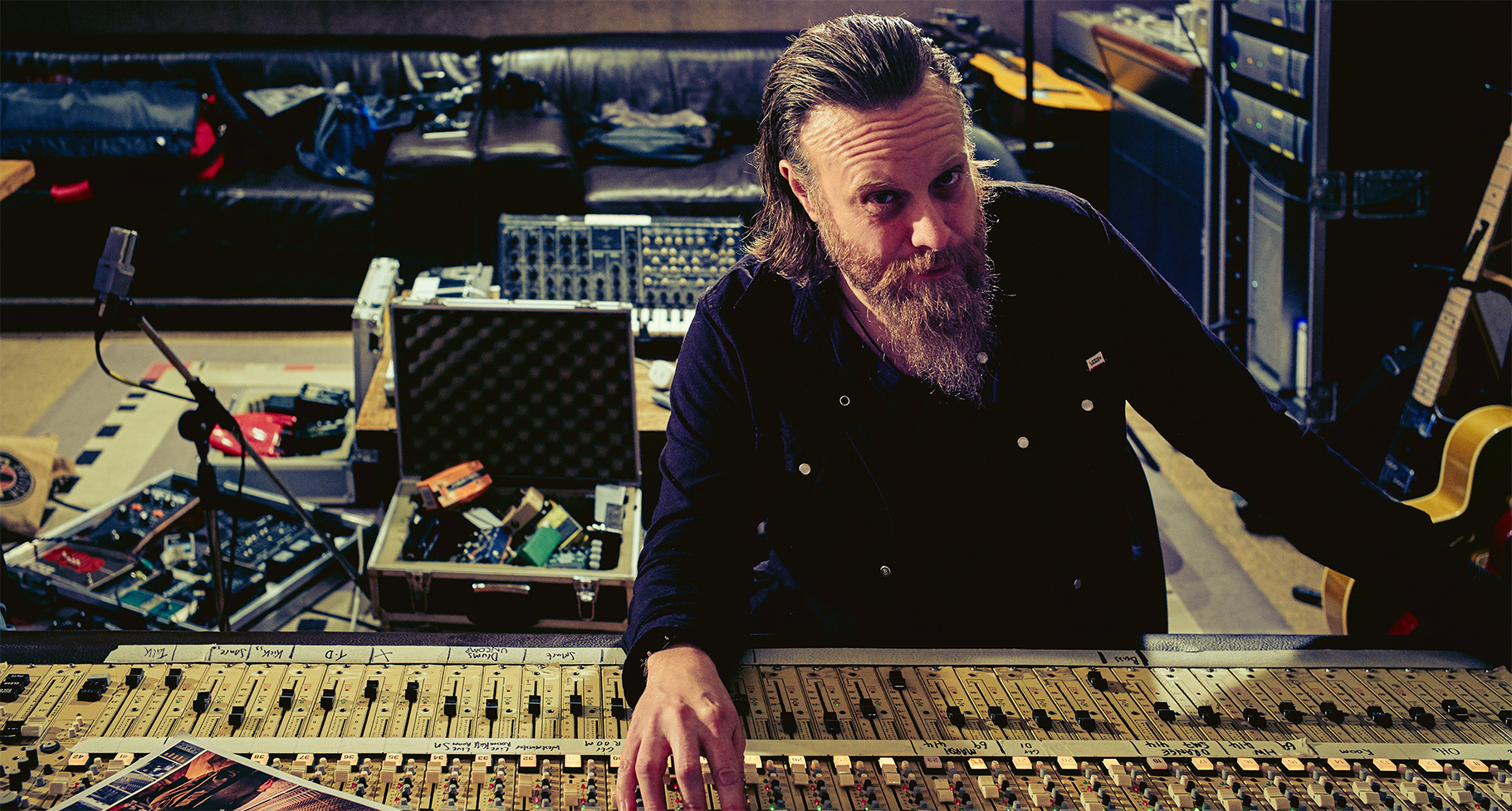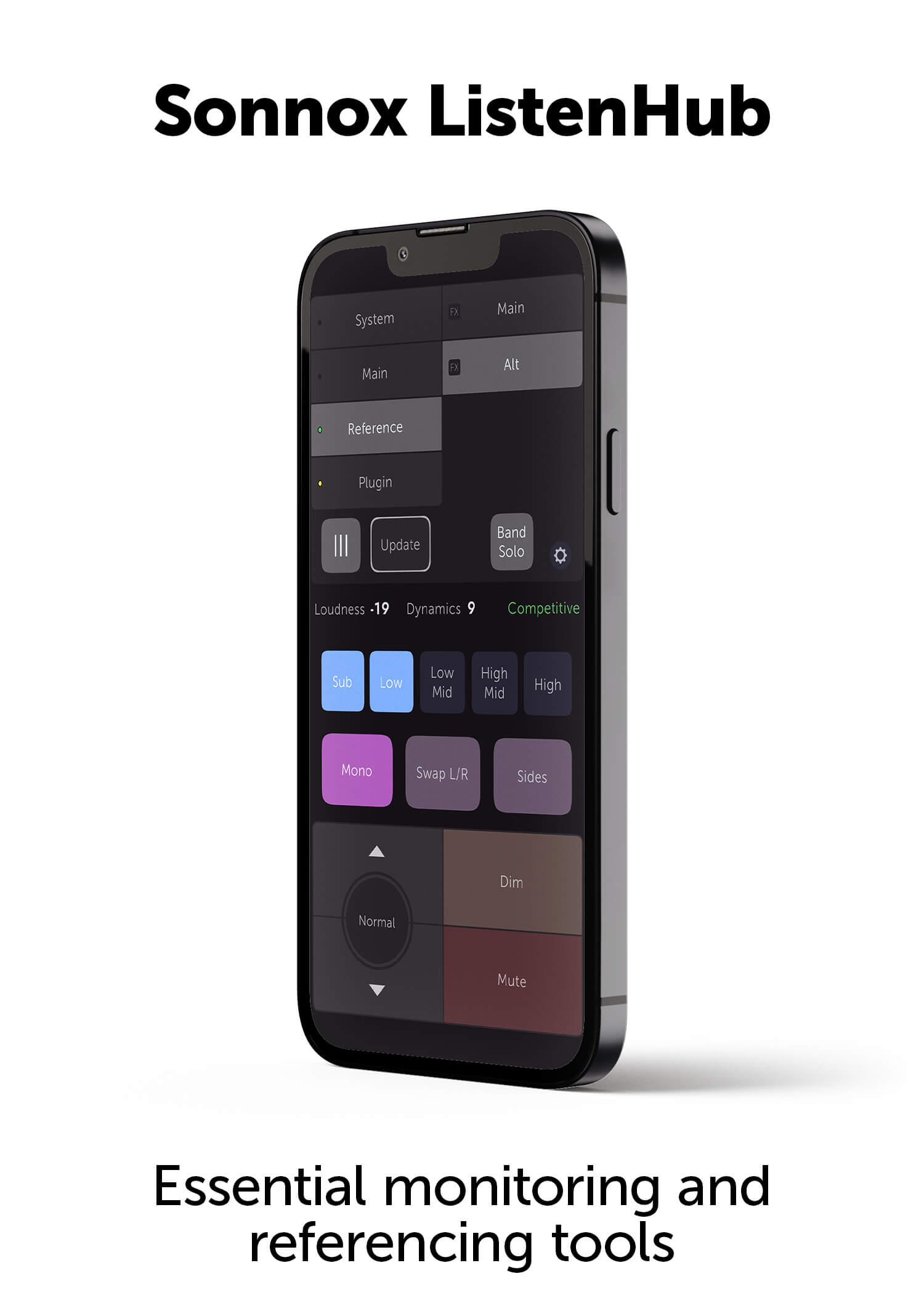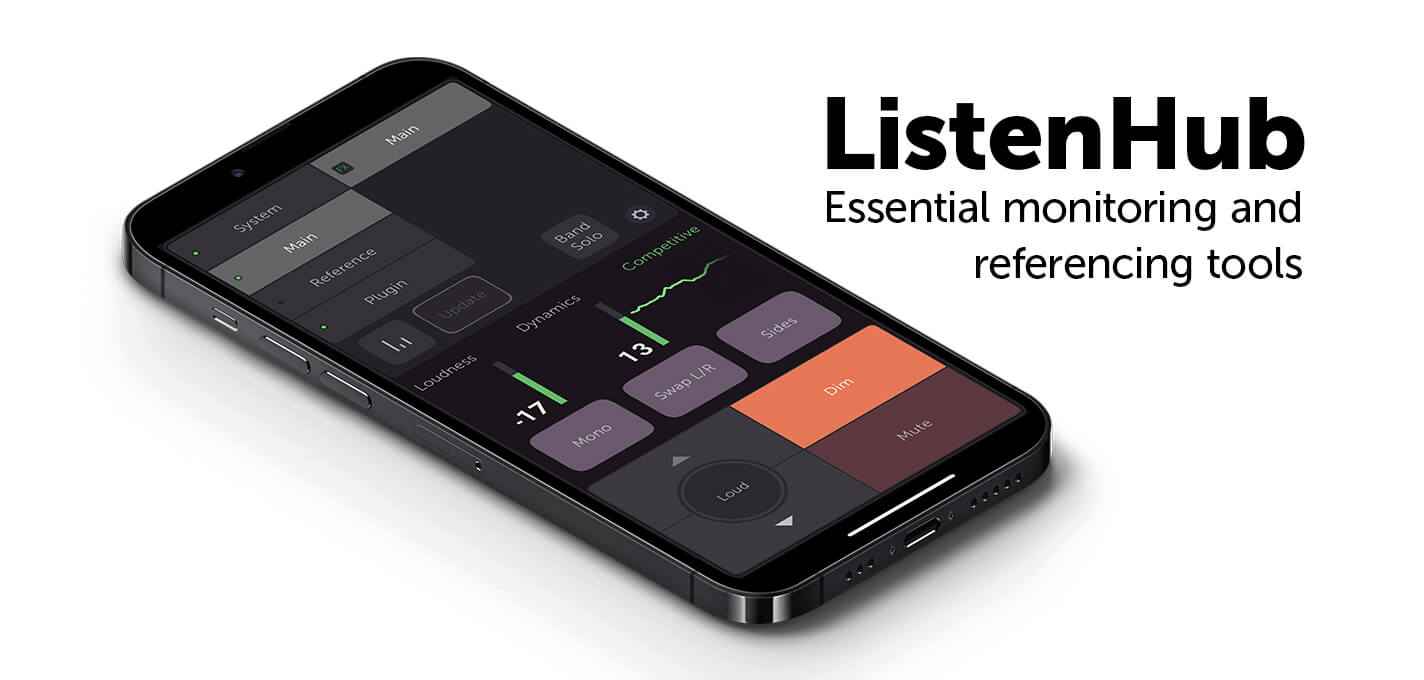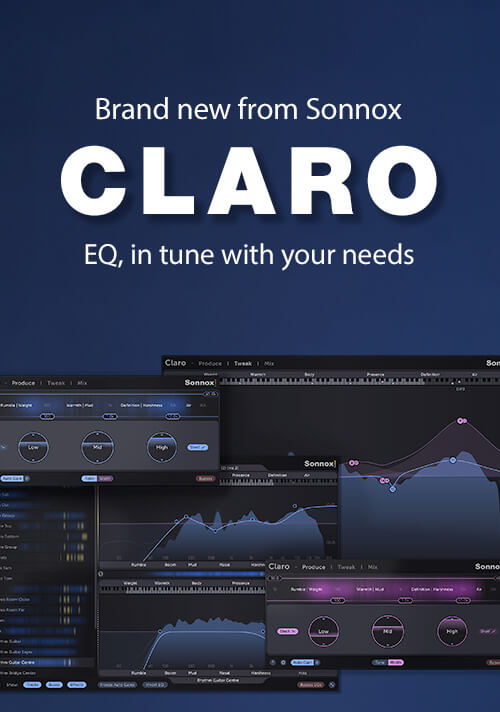Dave Eringa - Know Your Enemy
Reading Time: 10 minutes.
I wanted to compare and contrast the different approaches involved with producing a friend’s band or a band that you’ve worked with for many years versus those of working with an established act for the first time; being the elephant in the room. I’ve been incredibly lucky to work with the Manic Street Preachers for 30 years and counting, working on 10 of their 13 albums. More recently, I’ve been privileged to work with the 50-year rock-veterans, Roger Daltrey and The Who, so I guess I do have a perspective on both sides of that coin!
When you work with a band for a very extended period, it’s essential to keep it fresh and never to feel like you’ve got your legs under the desk and you’re there to stay! It’s a good thing to remember that although a lot of the time as a producer you can feel like the boss as you’re the one guiding the session, you’re actually not the boss at all - the band are employing you, it’s their record, not yours and they can sack you any time they want!
Working for as long as I have with The Manics presents many advantages, but also pitfalls that need avoiding. The obvious benefit is that we’re all friends, and the in-jokes and humour of the relationship were formed long ago. As soon as I’m in a room with them, the piss-taking will start. It’s a comfortable, family atmosphere for all of us. When you know each other this well, you’re not worried about looking stupid or coming forward with a bad idea because you’ve done all that stuff a million times before, so what harm’s one more time!? Creatively you feel very free, you know each other’s strengths and weaknesses and can judge every situation intuitively. The obvious pitfall to avoid is falling back into the same old techniques and sounds that you’ve gone for before, and that can take some serious, pre-emptive thought and upfront measures! Luckily The Manics are all intelligent individuals both personally and musically, and they always have on a fresh ‘manifesto’ for every new record! The band often specify a bunch of new ‘rules’ for the sounds and arrangements that might be radically different to what we’ve done before, or perhaps hark back to something we used to do a decade ago and haven’t done for a while. These ‘rules’ are developed in discussions before we get in the studio, they’re not written down. These rules might be things like we’re consciously gonna use less gain on the distorted rhythm guitar sounds on this record, or we’re gonna really try to do ‘less is more’ & not double track anything that doesn’t really need it for a good reason! The rules are also in the composition – a good example can be seen when they deliberately returned to more anthemic rock songs on 2007’s “Send Away The Tigers” after exploring a more keyboard-driven 80’s sound for the previous record “Lifeblood”. Rules can be broken, of course, and everything is very elastic. However, it’s still beneficial at the start of an album project to set out a bunch of musical and sonic references that can guide the project - even if the end product ends up very far from it. James (Dean Bradfield) is always recommending new music to me and will hand me a bunch of records to listen to before we start working on a new album. This music can be wildly different from The Manics in style. Still, there might be something in a sound that he would like to explore or just a vibe that he wants to capture something similar to, but it’s always music that makes me think - in this job, it’s surprisingly easy to forget to listen to new music!
It’s also important to remember that although we’re all good friends, this is work, so the friendship is left at the door of the control room, and it’s time to be professional! The band could choose to work with anyone they want, so it’s my responsibility to make sure I’m always bringing something new to the table. Luckily, I get to work with lots of other great bands that inspire me musically and even challenge me to think about the recording process in a different way. I always try to be a musical sponge so I can bring fresh ideas to the Manic’s family table! Just like it’s still on the band to justify their place in the hearts of their fans, it’s on me to justify my position in that control room. Every. Single. Time!
If a band decide to work with someone else on their next record that’s not something you should take personally – it could be for any number of reasons from record company pressure to a pure desire to get out of their comfort zone! It’s imperative to maintain all the good relationships you have in this industry because it’s really rather small! The Manics have worked with plenty of other people over the years! Every time that’s happened it’s been because they wanted to make a record that they knew wouldn’t play into my sensibilities – for instance, I wouldn’t have been right at all for the keyboard lead ‘Lifeblood’, or at the time they made ‘The Holy Bible’ I wasn’t aware enough of all the post-punk references, and they knew I would try and pull it in too ‘rock’ a direction! All through those times I was talking to them & asking them about different recording techniques they were using & just being a mate really. Mike Hedges made a jaw-dropping record with ‘Everything Must Go’, and that definitely spurred me on to try to reach new levels, so it can be a good thing!!
If things do go wrong though and you find yourself getting sacked from a project halfway through it’s really important to do some soul searching and really think about how you could’ve approached things differently. It’s all too easy at a time like that to blame other people in your head, but really that’s the time to take personal responsibility for what went wrong & make sure you don’t make those mistakes again on your next project!
80% of the job of production is psychology - it’s all about intuiting the best way to put an artist in the optimal frame of mind to give you their most honest performance, so you need to do everything in your power to set the scene and gain their trust! Working with an artist like Roger Daltrey for the first time could be daunting; they’re incredibly successful and have worked with your heroes, but right now, they’re now standing in your live room. You’ll need to overcome any slight onset of ‘imposter syndrome’ quickly, or you’ll be going down in flames! You need to develop a certain amount of confidence in your skills to do these sessions, but there’s a fine line between that crucial confidence and complete arrogance that needs to be managed carefully. As far as overcoming imposter syndrome goes the only way is just to dive in with both feet – it’s always good to remember that this is only pop music & no one is going to die if you get something wrong!!
I first worked with Roger on an album with Wilko Johnson (Going Back Home), so I had already been in the studio with Wilko and the band for a few days before Roger came down. I had only spoken once on the phone to him about his ideas for the record, but I hadn’t met him in person as the schedule was very tight because Wilko was so ill at the time. The first time I actually met Roger was in the studio, and I didn’t exactly put my best foot forward; I instantly declared that I was a huge fan, and he looked less than impressed. I immediately realised that he has plenty of fans, at this moment, he doesn’t need another one; he needs someone that’s going to make an excellent sounding record for him! I winced internally and had to steady myself, but luckily for me, we had some tracks to play him that were already sounding great, and I was able to win his confidence, as an engineer at least!
When it came to recording his vocals, there were a couple of things that I think were key. The first was that, by reading the atmosphere in the room, I’d realised that he would prefer to have no-one else in the studio while he sang, and asked everyone else to take a break outside, giving Roger some privacy so he could find his voice and warm up. Secondly, I built a comfortable vocal booth and decorated it with fancy lights so that the vibe was there - I’m sure Roger would say that made no difference. Still, even on a subliminal level, it shows him that I care about his performance and that I’m on his side. Small gestures like this can be a huge help in gaining someone’s trust.
When he first got behind the microphone, I was taken back by just how massive, powerful, and toneful his voice is. His voice filled both speakers in a way that very few others can, but it’s essential at this point not to be patting yourself on the back for a great vocal sound, but to be 100% focused and make sure you’re giving him exactly what he wants in terms of headphone mix, vocal tone and creative feedback. Singing is such a naked and personal thing emotionally, so it’s vital to offer immediate and positive feedback and to understand very quickly what the artist is looking for from you. In this case, it was about keeping positive but also honest when he asked for an opinion - artists that have been around this long have a very well refined bullshit detector, so the last thing they want is another yes man! Offering constructive criticism is most effective when starting with a positive point before expanding on a negative one. For example, I might say “Oh my god, the way you sang the second line was amazing, but that made the first sound a little lacklustre. Shall we give that one another try?” Through a combination of this musical honesty and being quick technically, I gained his trust. Once you’ve done that, you’ve won the war, because from now on, he’ll feel comfortable working with you for every other vocal recording!
If you do find yourself recording a more fragile personality, it’s a good idea to build a healthy relationship with them before you get them behind a mic. If you’re doing an album maybe wait a few days before starting the vocals to give yourself time to build that trust. I’ll always make a lot of jokes and allow myself to look stupid or funny in the downtime to create a comfortable vibe where people see you as part of the team and are happy to be open in front of you. Deep conversations about big topics over a glass of red late at night can help with this! If you can subtly find out what makes someone tick, then you can play into those sensibilities when they’re behind that mic & feeling vulnerable. Getting inside an artists head is an essential part of the job! If you don’t have time on the session itself, then I would recommend a night out with the band before the session starts!
It’s also important to remember that an intelligent and experienced artist is likely to throw you a test at the beginning. When hired to produce a song for The Who, the pressure racked up another few notches! I had a day with Zak Starkey and Pino Palladino to get sounds in British Grove Studios before Pete Townshend came in. We’d got some great tones ready, so he could arrive early on the second day and start recording. I had already met Pete a couple of days before, but it was still a big moment when he walked into the control room! Zak was playing in the live room, and I was tweaking something, so I told Pete I’d be ready in just a moment, he immediately shot back that the first thing I needed to do was move the drum kit into a booth as he wasn’t “gonna play standing next to that loud c**t!” I realised this was a test - he wanted to see if I’d start flapping and moaning about the big drum sound we’d spent ages on, so I politely replied: “no problem, we’ll move the kit straight away!” When I didn’t take the bait, Pete perked up with “well, I suppose I could play in a booth...” I told him that was a great idea and we got straight to it. An artist who has that much experience is always going to throw you a curveball to test you and see if you’re up to the task and luckily this time I was able to catch it! After that, it was a joy to record him, and he was lovely for the whole session! There’s no obvious way to tell if an artist is testing you or just being a diva, but the result is the same either way – you’re still gonna have to be willing to jump through that hoop!!
Overall, the experiences of working with artists you know very well and also artists you’ve only just met should cross-pollinate in your head. In essence, the best thing about working with a new artist is the buzz, the excitement of the unknown and the edgy feeling of being 100% present in the moment. Try and find that same feeling when you’re back with the artist you know well and bring that buzz with you. Remembering that you have to justify your presence in this room of friends just as much as you did with the band of strangers can bring that buzz right back to you and make you feel hungry to come up with something amazing! Conversely, you should take some of the confidence and calm of working with the band you know well and bring that into every session. If a seasoned pro can see that you’re comfortable with the situation, then they’ll be comfortable too, no matter how many millions of records they’ve sold or how many TV’s they’ve thrown out of hotel windows!
Watch the live stream:
We'll be going live on Facebook with Dave on Wednesday, May 27th at 7 PM BST.
About Dave:
Dave Eringa is a record producer with over 22 years of experience producing & mixing international hits for the likes of Manic Street Preachers (with whom he has over a 20-year association spanning numerous albums and number 1 singles), The Who, Wilko Johnson & Roger Daltrey, Idlewild, Ash, Kylie Minogue, Tom Jones, Ocean Colour Scene, Suede, and many others.
